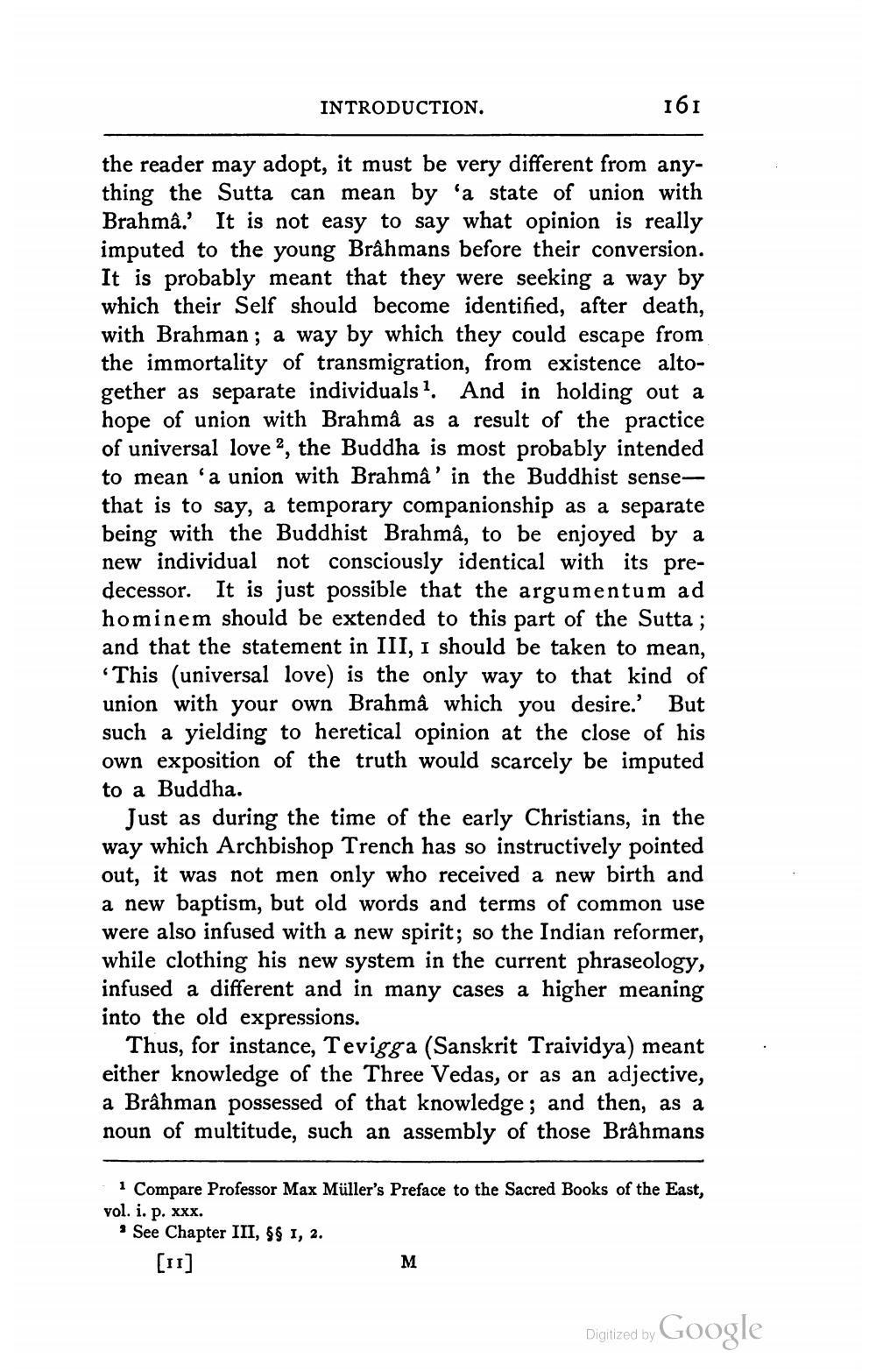________________
INTRODUCTION.
161
the reader may adopt, it must be very different from anything the Sutta can mean by 'a state of union with Brahmâ.' It is not easy to say what opinion is really imputed to the young Brâhmans before their conversion. It is probably meant that they were seeking a way by which their Self should become identified, after death, with Brahman; a way by which they could escape from the immortality of transmigration, from existence altogether as separate individuals?. And in holding out a hope of union with Brahmâ as a result of the practice of universal love ?, the Buddha is most probably intended to mean a union with Brahmâ' in the Buddhist sensethat is to say, a temporary companionship as a separate being with the Buddhist Brahmâ, to be enjoyed by a new individual not consciously identical with its predecessor. It is just possible that the argumentum ad hominem should be extended to this part of the Sutta; and that the statement in III, I should be taken to mean, *This (universal love) is the only way to that kind of union with your own Brahmâ which you desire.' But such a yielding to heretical opinion at the close of his own exposition of the truth would scarcely be imputed to a Buddha.
Just as during the time of the early Christians, in the way which Archbishop Trench has so instructively pointed out, it was not men only who received a new birth and a new baptism, but old words and terms of common use were also infused with a new spirit; so the Indian reformer, while clothing his new system in the current phraseology, infused a different and in many cases a higher meaning into the old expressions.
Thus, for instance, Tevigga (Sanskrit Traividya) meant either knowledge of the Three Vedas, or as an adjective, a Brâhman possessed of that knowledge; and then, as a noun of multitude, such an assembly of those Brâhmans
i Compare Professor Max Müller's Preface to the Sacred Books of the East, vol. i. p. xxx. * See Chapter III, $$ 1, 2.
[1]
Digitized by Google




